Consumers Will Decide on PlayStation 4 - Sony
Fergal Gara says current generation is not dead
The next-generation PlayStation 4 is a long way off and the PlayStation 3 is here to stay, according to Sony UK Vice President Fergal Gara, adding that consumers will decide when a new console is needed.
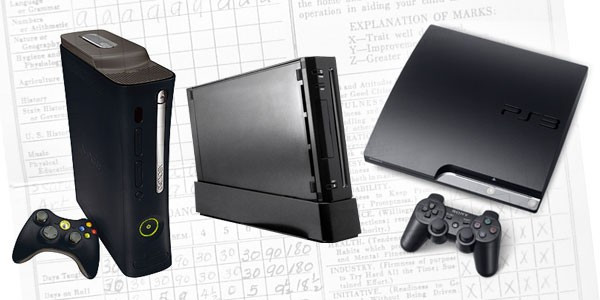
For the last year or more, everyone's been waiting for an announcement on next-gen games console hardware.
It started with the trailer for Real Steel, when a gag billboard advertising an "Xbox 720" sent fan speculation into overdrive. Now, it seems those rumours are starting to solidify, with leaked info on PlayStation 4 development kits already beginning to circle.
It's not before time. The Xbox 360 has been on shelves since 2005, and has already gone through five different iterations. The PlayStation 3 is getting on some, too, having first gone on sale on almost exactly six years ago to the day.
But both Microsoft and Sony are insisting on bedding down in the seventh-generation, with Xbox games leader Shane Kim telling VentureBeat that the console will last until at least 2015.
Fergal Gara, Vice President and Managing Director of SCE UK and Ireland is equally as confident in current gen hardware. With the release of Sony's new Wonderbook, a slew of Vita announcements at the Tokyo Game Show this year and two brand new IPs coming in the shape of Beyond: Two Souls and The Last of Us, Gara seems confident that the PlayStation 3 has a lot more life left in it:
"We don't take the view that it's over for current-gen," he explains "that's not the shape of our business. We're continuing to innovate with the PS3, making it smaller, lighter and offering better value entry-point consoles. There's been a big engineering push in Tokyo to give it a facelift and a spec revitalization, too, so that's good to see... We take a longer view of lifecycles than some of the competition."
Casual market
Despite flagging revenue across the whole industry, the PS3 has recently seen an upturn, a new "Super-Slim" model driving units sold over the five million milestone in the UK alone.
The cheaper base console will open the PS3 up to late adopters, with family friendly IPs like Wonderbook: Book of Spells and LittleBigPlanet Karting are set to plunder the lucrative casual market. Meanwhile, the Vita is gunning for a more "core" audience:
"There were pros and cons with the PS3 when it launched," admits Gara. "With it being such a high-powered machine it did mean it was quite expensive, but that also meant you could keep pushing it for a lot of time to come.
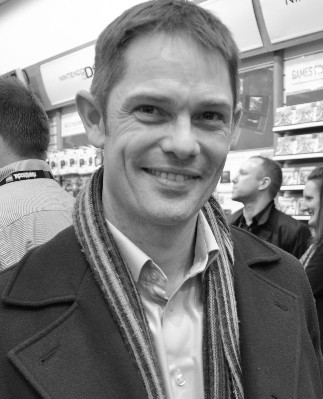
"We're into the world of trying to expand the console to new entrants who maybe considered a console in the past but perhaps thought the price was too high... we're into that stage of the cycle, of trying to bring in the less committed side of the market and that's where Wonderbook and Book of Spells will work for us.
"Vita's at a different stage. We see more committed gamers coming into that and obviously it's a lot younger."
Christmas
Christmas will be a telling point for Sony; regarded as the most profitable part of the year for games, this December will be overshadowed by Nintendo's Wii U, which is set to launch on 30 November. That leaves the Super-Slim PlayStation battling with the most established casual console on the market, but Gara doesn't think there will be much overlap:
"There is healthy competition out there, coming at us from different angles. It's interesting this year since we all seem to be playing the game a little bit differently. Nintendo in the home console space is launching a new platform where I'm sure they'll do well.
"That may have some degree of overlap with people who considered a Vita, but I don't think that much. I don't think it will have any overlap at all with people who were looking at a PS3. They're effectively focused on what's good for them, but it's a different segment.
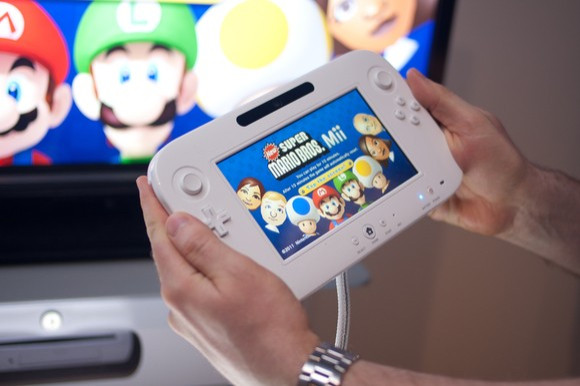
"I reckon Microsoft will be after a relatively broad church again," continues Gara. "They've got very strong IP in the core gamer segment, with Halo obviously leading the charge there.
"But I don't see an awful lot that's new or exciting on the family agenda or in the Kinect space, so I think we have an awful lot of opportunity to bring something to the market, especially for that casual consumer.
"Where we're not at our strongest this Christmas is with a big core gaming IP from Sony ourselves, so we've keen to ensure that the partnerships surrounding us, such as with Assassin's Creed III are stronger than ever."
Intellectual Properties
Despite a lack of family-orientated launches from Microsoft, Sony's chances in the casual sector are unclear, too. Pre-orders for the Wii U have already sold out at retailers in US, and although the Super-Slim PS3 comes with a massive price reduction, with the 12GB version down to £149.99, the PlayStation has never been seen as a casual machine.
With its hulking black chassis and powerful hardware, the PlayStation 3 is the console of choice for devout gamers, so Sony is keen to please them, too. Psychology action game Beyond: Two Souls will launch exclusively for PS3 next year, as will gritty survival-horror blockbuster The Last of Us:
"We're very pleased with the core IPs we've got coming next year," says Gara. "That seems to have surprised the market, especially when the mindset among the media seems to be that everyone's given up on current generation.
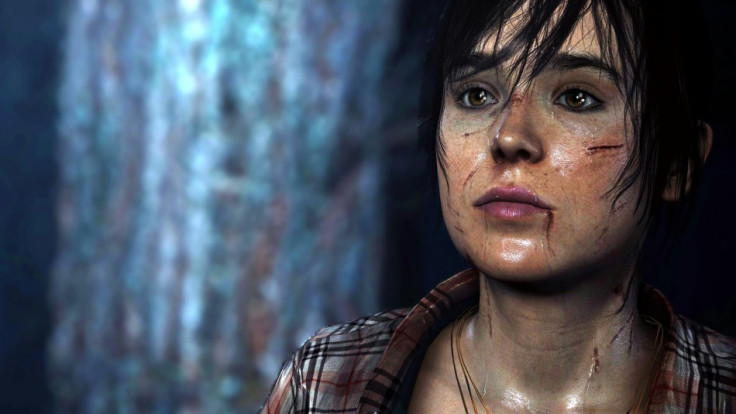
"The kind of cultural diversity across the platform is really exemplified by games like The Last of Us which is innovative but still very core, and the real artsy stuff like on the PlayStation Store. I think that's what I'm most proud of this year, the quality, the breadth and the creativity of all the studio input.
"I think the digital only IP like Journey, Tokyo Jungle and Unfinished Swan - considering my past working in music they're like the underground bands that are doing something quirky. And I think we should put our arms around those more as a business, and we are putting some of them into retail now.
"If you bought a PS3 this Christmas and nothing new came out, you'd be bitterly disappointed. We don't want to penalise people for coming in late."
As for the long-rumoured PlayStation 4, or PlayStation Orbis as it's tentatively referred to, Gara says it's up to consumers to decide when new hardware will be developed, insisting that there's no rush towards the next generation:
"We've had a good ten years out of every home console so far, so I think consumers will dictate really. Even when a new console is announced and launched, they'll co-exist in the market.
"There's always a hunger for fresh and exciting tech from a consumer point of view [but] prolonging a life-cycle gives massive benefits to developers because they're developing software for a large install base.
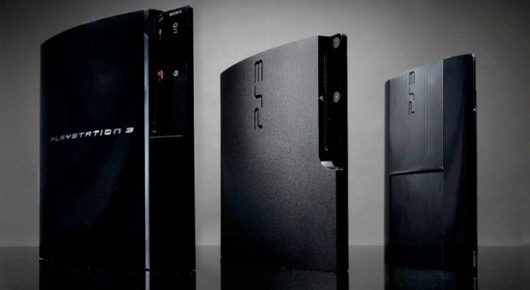
"There's also the fact that a lot of what we do is big budget stuff, not just in terms of finances but in regards to headcount. When you're supporting two, or three different platforms then you're already splitting your resources.
"And when you inevitably add the development of a next generation consoles you're adding a third or maybe a fourth platform, and that has the risk of splitting the resources too thin. So, it's tricky to time; we have to make sure we know when people are updating out of things."
Here to stay
With new IPs in the shape of The Last of Us and Beyond, a push towards the casual market with Wonderbook and the Super-Slim and a complete revitalisation of the PlayStation Store, it seems like the PS3 is here to stay, at least for the next year.
The Xbox 360, too, is going nowhere fast, with Gears of War: Judgement already pencilled in for March 2013.
It's a refreshing change of tack for the games industry, which too often rushes towards proliferation. New graphics engines, processors and flashy effects are often valued over writing, design and ideas, leading to the impression that games are a technological concern rather than a cultural one.
Slowing the console arms race down and giving developers the time to make the best of the hardware makes for great new games; in Gara's view, the next generation of technology will enable a new tier of creative work:
"I think 'technological enabler to a cultural experience' is the best way of putting it. We've seen successive console generations open up the possibilities of new levels of gameplay, and who knows what future generations will achieve in that regard; it's certainly been very impressive across the last few cycles.
If consoles unlock another set, another tier or cultural experiences then it gives the real artists more room to express themselves.
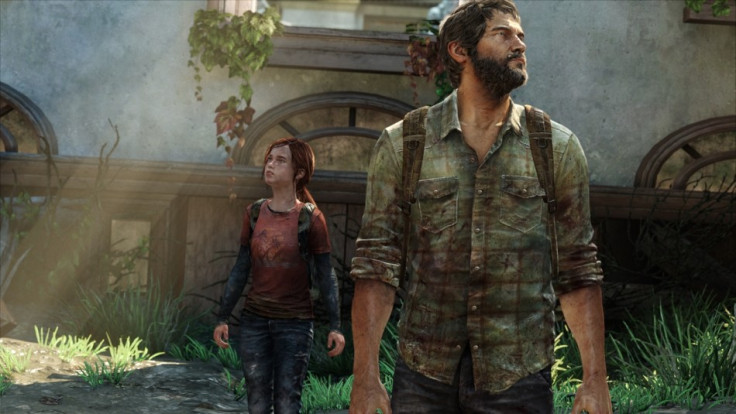
"But then, it's still amazing what you can do with a PS3. Sometimes it's the left-field thoughts that are the best innovation. You could easily take the technological view that these consoles are a bit old now, because no one has a lot of six year old technology lying around, but we've got IP that's pushing the boundaries and that's what's most important.
"I sense a level of fatigue in the market over games with bigger and bigger budgets. And when some of those bubbles burst people will aspire for something with some more innovation...A lot of people seem to think that current gen is dead - it isn't dead for us."
© Copyright IBTimes 2025. All rights reserved.






















